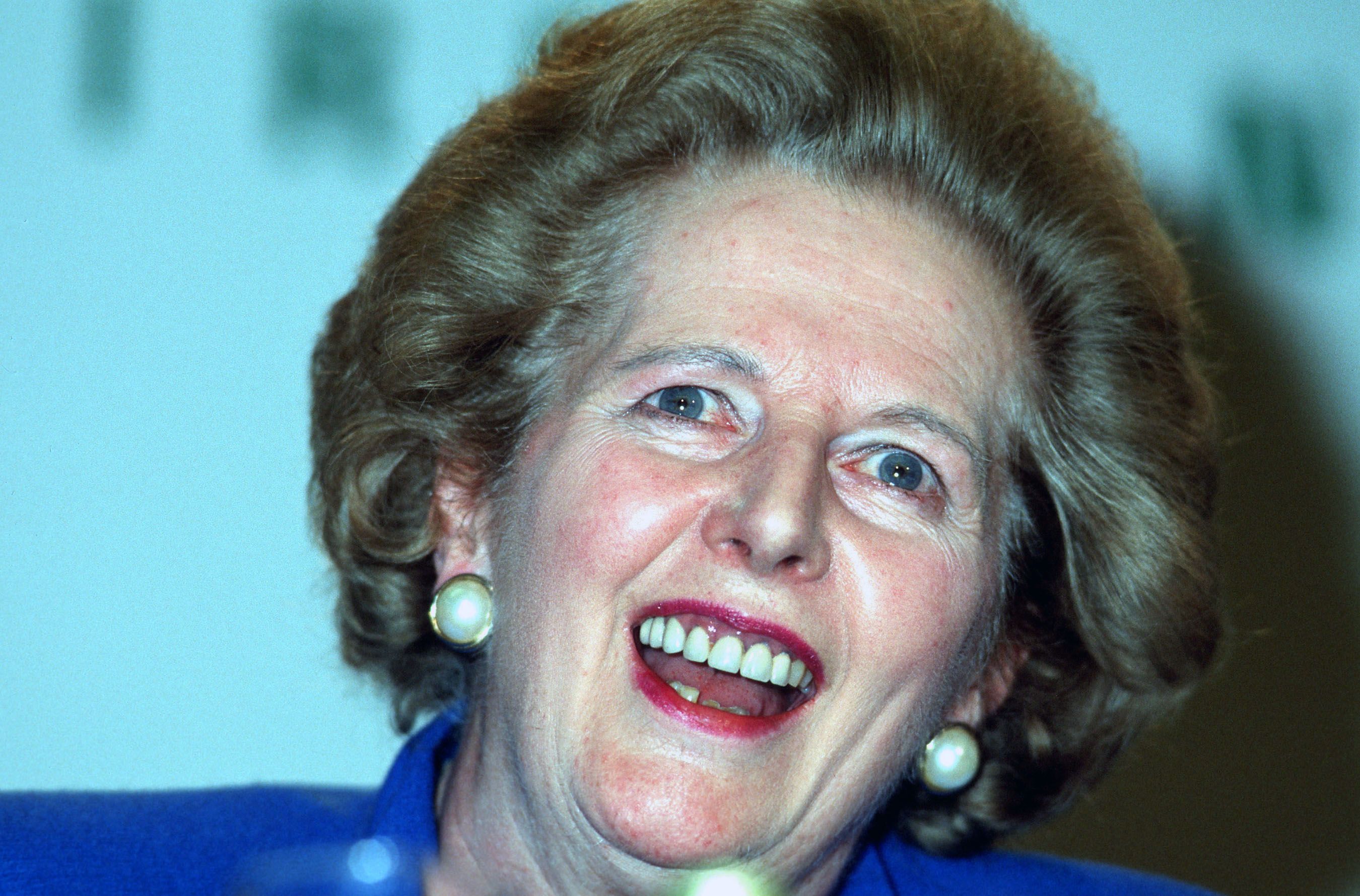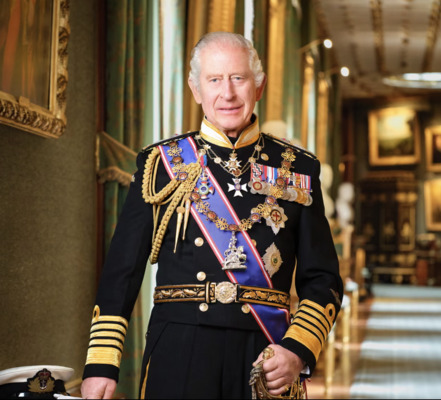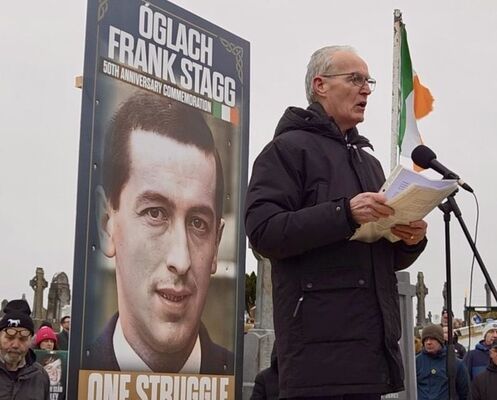SUNDAY was the anniversary of the imposition on October 19, 1988 of the broadcasting ban by British Prime Minister Margaret Thatcher. Prior to that censorship in one form or another had operated in the North and in Britain, and also in the 26 counties. The rationale for this had long been the desire of the two governments to deny citizens their right to information. In this way it was easier to promote the establishment’s narrative.
In Ireland the British media strategy had its roots in Britain’s colonial experience. But it was especially influenced by the writings in the late 1960s of General Frank Kitson who believed that all governmental structures; the judiciary, the law, the police and the media, must be part of a co-ordinated strategy to defeat ‘the enemy’ while suppressing citizens and their rights.
The broadcast ban is best remembered for its prohibition on Sinn Féin voices being broadcast. The various actors and journalistic voices that were used to mimic my voice, and that of Martin McGuinness and others, were at times so silly that they provoked widespread derision. But censorship was about more than gagging Sinn Féin. It was primarily about restricting the flow of information about the conflict. It interfered with the dissemination of knowledge, of facts and inhibited the communication of opinions. It reinforced a climate of secrecy which protected British security agencies as they tortured, colluded with loyalist paramilitaries in the killing of citizens, and killed political opponents.
The ban was widely welcomed by unionist spokespersons, by the Tories, by Gerry Fitt and sections of the British press. The South African apartheid President, PW Botha, backed the ban while pointing out that the British could no longer criticise the White South African government.
Censorship, whether the self-censorship and unofficial censorship of the ’70s and early-’80s, or Thatcher’s broadcast restrictions, or the Irish government’s Section 31, were all about preventing the public from hearing the truth. Almost 40 years later and the right of citizens to freedom of information and to seek and impart information remains under threat by the legacy proposals published last week in the ‘Northern Ireland Troubles Bill’ jointly agreed by the British and Irish governments.
Presented by the Irish and British governments as the resolution to the long running legacy issue the Bill is anything but that. Once again the British government, with the support of the Irish government, is introducing a legal structure that provides the British state with the means to deny the truth to families.
Under draft legislation, drawn from the two governments’ Framework Agreement, the British Secretary of State will have the power to withhold information from families and inquests; from the information retrieval body, the Independent Commission for Reconciliation and Information Recovery (CRIR); and from the new Legacy Commission. In addition, agencies like MI5 will have the power to vet all reports. The British Secretary of State will also be able to make various regulations and guidance, including the power to make an award to cover legal representation/expenses etc. for participation in inquisitorial proceedings.
Currently, the British Secretary of State is legally challenging the ability of coroners to release a gist (summary) information report in inquests like those of Seán Brown and Paul ‘Topper’ Thompson. Seán Brown’s family is being denied their request for a public enquiry.
The legislation also makes it clear that apart from the nine inquests that are almost completed, the intent of the legislation is to shoehorn as many, if not all, outstanding inquests, around 24 in number, into the new Legacy Commission and the Inquisitorial Proceedings which the British Secretary of State and MI5 can veto.
All families and survivors have the right to an Article 2-compliant investigation into the death of their loved one. However, on page 40 of the draft legislation it states: “The Directors of Investigation must take into account any investigation {of any kind, including an inquest} of the death that has already been carried out by any other person.” This suggests that any prior investigations or inquests which were not Article 2-compliant can still be used as an excuse not to proceed.
That an Irish government would agree to measures to protect British soldiers is disgraceful. The Glenanne Gang was a mix of British army, British intelligence, UDR and RUC personnel along with loyalist paramilitaries. It is believed to have killed over 120 people, including the 34 people killed in the Dublin-Monaghan explosions in May 1974.
In 2001 a Commission of Inquiry under Mr Justice Henry Barron was established by the Irish government. The British government refused to cooperate with it. Four reports were published and a sub-committee of the cross-party Joint Oireachtas Committee on Justice, Equality, Defence and Women's Rights conducted an extensive examination of the reports.
The sub-committee concluded that “given that we are dealing with acts of international terrorism that were colluded in by the British security forces, the British government cannot legitimately refuse to co-operate with investigations and attempts to get to the truth.”
To his shame, An Taoiseach Micheál Martin has now signed up to a new law that will protect those in the British security agencies who were responsible for the Dublin/Monaghan and other attacks in the 26 counties.
Finally, in its determination to prevent former internees, illegally imprisoned in the 1970s, from receiving compensation the British government did not include any reference to interim custody orders in the Framework Agreement. Instead they included in the legislation a mechanism to block compensation. This move follows the British Prime Minister Keir Starmer’s outburst earlier this year when challenged about my case for compensation. Speaking in the British Parliament he said that he would “look at every conceivable way to prevent these types of cases claiming damages”.
In 2020 the British Supreme Court determined that I was wrongfully interned for a period in the 1970s. The decision by the Court was explicit. Interim Custody Orders not authorised and approved by the Secretary of State were illegal. It is believed that upwards of 400 other internees are similarly affected. In the course of the Supreme Court case my lawyers proved that the British government knew at the time that it was breaking its own law in charging me with attempting to escape. It proceeded anyway, knowingly breaking its own law.
This new law upholds the quashing of the convictions I and others received but denies compensation. This is clearly discriminatory. Once again the British state changes the rules to protect its security personnel while denying others equality of treatment.
Dealing effectively with the past, providing information, truth, and justice, is key to acknowledgement and reconciliation. The cover-ups mean the past cannot be resolved. The British want to close the door on their past actions, to protect their agents and security agencies. They and the Irish government, must be challenged on this.
C-Day is fast approaching
THE last week has seen a significant increase in negative campaigning against Catherine by Fine Gael and Fianna Fáil and by the establishment media.
Why has Catherine Connolly, who most of the media ignored during her time as a TD, become the bête noire of the establishment? Is it because she has unashamedly challenged Fine Gael and Fianna Fáil on their appalling record in government – on health, on homelessness, on the cost-of-living crisis and on carers? Is it because of her fluency in the Irish language? Is it because she has defended neutrality and condemned genocide against the Palestinian people? Is it because of her support for a United Ireland?
It’s all of these and more but I suspect it also has to do with the unity of purpose demonstrated by the alliance of parties who have backed her. Citizens in the Irish state are seeing for the first time the possibility of a pathway into government for a viable alternative left coalition that is mould-breaking.
So, good luck Catherine. Ádh mór ort.
And finally finally...
WELL done to Naomh Eoin's Senior hurlers. Crowned Antrim Champions on Sunday after six semi-final defeats in seven years and after a dogged battle with Loughgiel, the Johnnies are the hurling Kings of the county. Well done to all the hurlers, the management and support staff, the club committee and everyone in St John’s.







